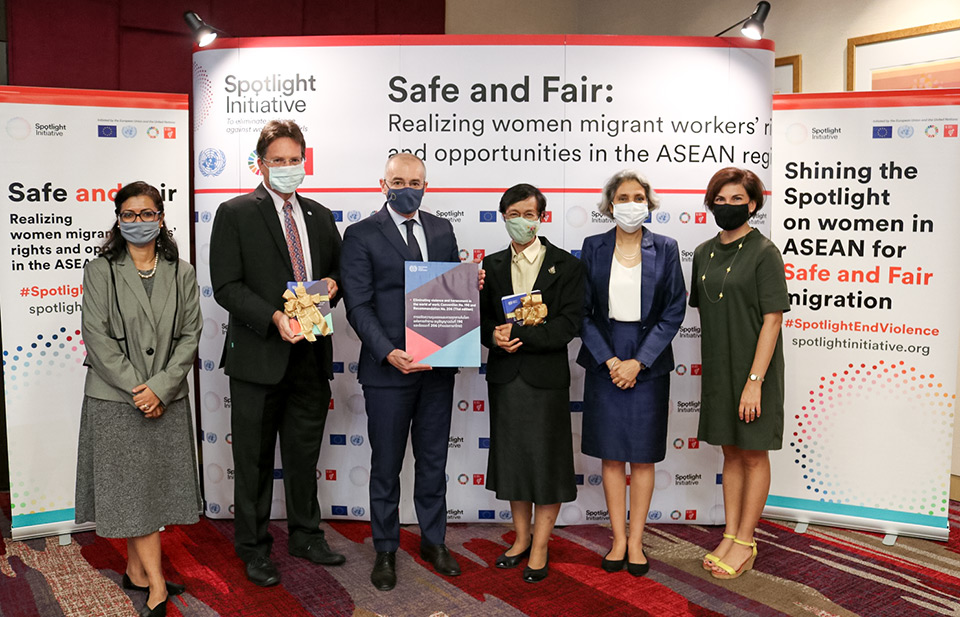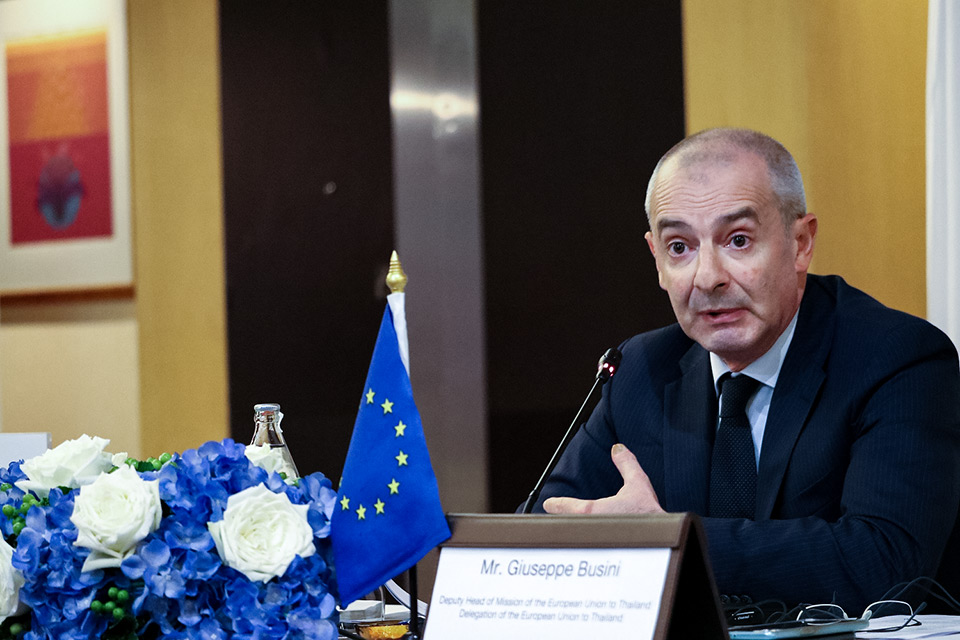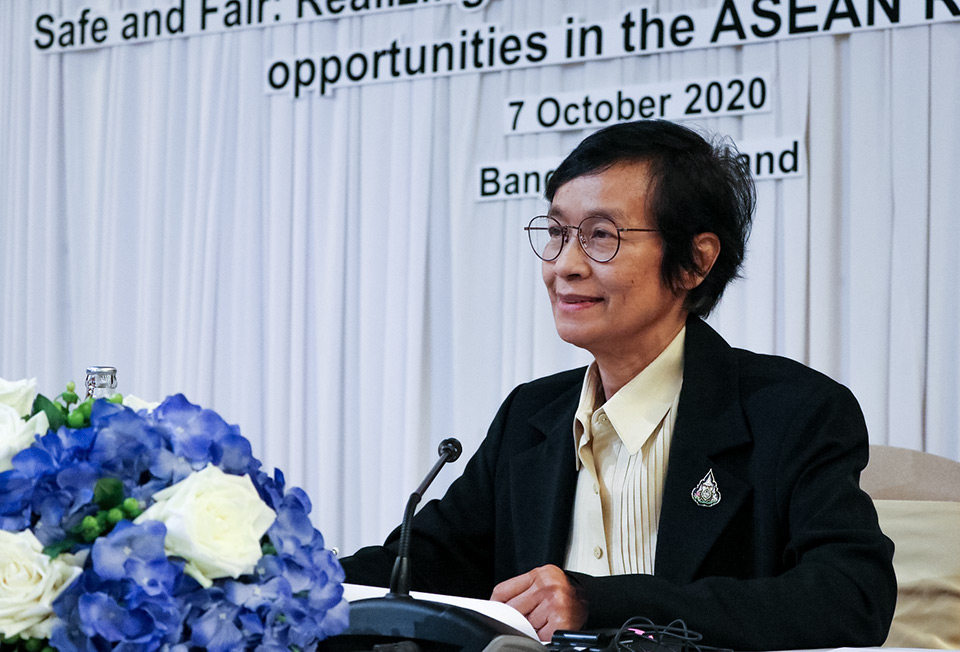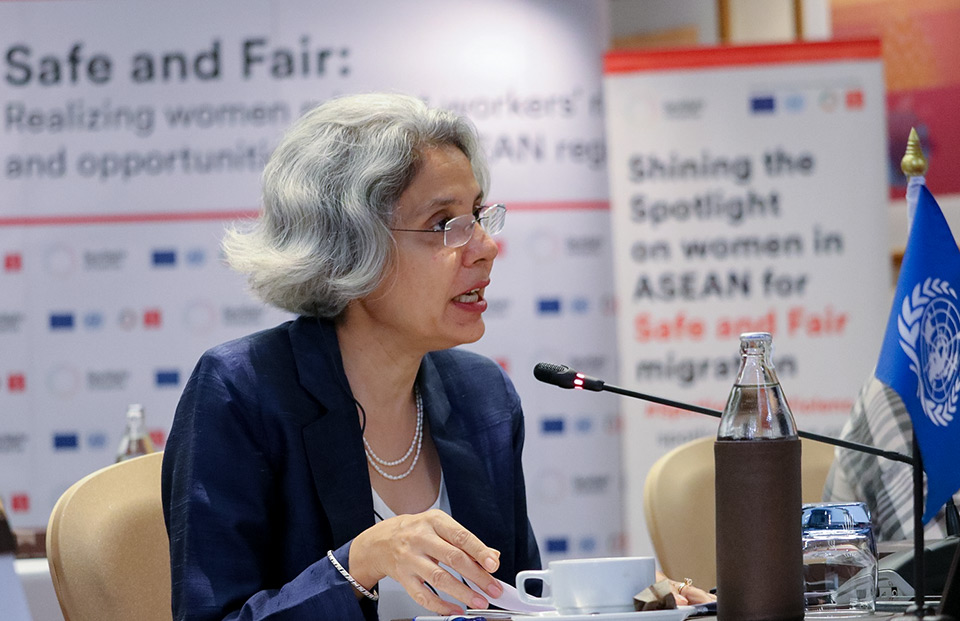Groups supported by EU and UN tell of their help for Thailand’s female migrant workers
Date:
Author: Pichit Phromkade, International Labour Organization

Bangkok, Thailand — Continuing efforts must be made to ensure that women migrant workers in Thailand are safe from violence and can access essential services during the COVID-19 pandemic, say civil society groups supported by a European Union-United Nations programme.
These services must be improved but at the same time made more available to all women migrant workers regardless of their immigration status, said Poonsap Tulaphan, the director of Foundation for Labour and Employment Promotion.
Representatives of the foundation and other civil society groups spoke at the 7 October meeting of the third National Project Steering Committee of the EU-UN Spotlight Initiative’s Safe and Fair Programme to help women migrant workers in the Association of Southeast Asian Nations region. UN Women and the International Labour Organization implement the programme, in collaboration with United Nations Office on Drugs and Crime.
The event gathered nearly 70 representatives of the Thai Government, workers, employers and civil society organizations to discuss the challenges women migrant workers and employers faced from the pandemic.
Several million migrants from neighbouring Cambodia, Lao People’s Democratic Republic, Myanmar and Viet Nam are employed in mostly low-skilled jobs in Thailand, including agriculture, construction, manufacturing, domestic work and other services. But the migrant flow and their lives have been disrupted by the virus pandemic.

“To fight violence against women during these very special times, where many women, especially migrant women, have been particularly vulnerable to violence, it is important that we include women migrant workers in the national COVID-19 response and ensure they have access to essential services,” said Giuseppe Busini, Deputy Head of Mission of the EU Delegation to Thailand.
Poonsap said her foundation has established networks in Bangkok, Mae Sot and Chiang Mai — three cities where many migrants work — to give essential information to survivors of violence and to refer them to service providers.
Language is a key barrier for female migrants as they try to get better working conditions and essential services when they experience violence or exploitation, said Wasurat Homsud, programme officer of Raks Thai Foundation. He said the foundation gives Thai language courses on Facebook to ensure the women can get the instruction during the pandemic. The foundation also has provided personal protective equipment and information to female migrant workers in Chonburi province, he said.
Adisorn Kerdmongkol, coordinator of Migrant Working Group, said the COVID-19 outbreak has made it more difficult for migrant workers to secure their rights to stay and to access emergency assistance, social security benefits and health care. This, he said, is particularly true for the women, who are employed in the sectors hardest hit by COVID-19, such as services and domestic work. Adisorn said his group gives the women personal protective equipment and drinking water and food, helps them apply for social security benefits, and provides them with information and access to services so they are less vulnerable to trafficking and smuggling.

The State Enterprises Workers' Relations Confederation is starting to provide services to female migrants in Songkla province and help them organize, said Sation Thunprom, the trade union’s project manager.
To ease the impact of COVID-19 on the economy and on migrant workers, the Thai Government has taken measures such as jobs retention schemes, expanded social protection coverage, employment promotion, skills development and support for enterprises in retaining workers, said Pataraporn Samantarath, Assistant Permanent Secretary of the Ministry of Labour.
 Gita Sabharwal, United Nations Resident Coordinator in Thailand, speaks at the steering committee meeting. Photo: ILO/Pichit Phromkade
Gita Sabharwal, United Nations Resident Coordinator in Thailand, speaks at the steering committee meeting. Photo: ILO/Pichit PhromkadeIn closing the meeting, Gita Sabharwal, United Nations Resident Coordinator in Thailand, praised the Thai Government for “committing … to make the prevention and redress of violence against women, including women migrant workers, a key part of national response plans for COVID-19.” She also praised its efforts to achieve the United Nations Sustainable Development Goals for 2030, especially those addressing problems women migrant workers face: gender equality, decent work, reduced inequality, and strong institutions for peace and justice.